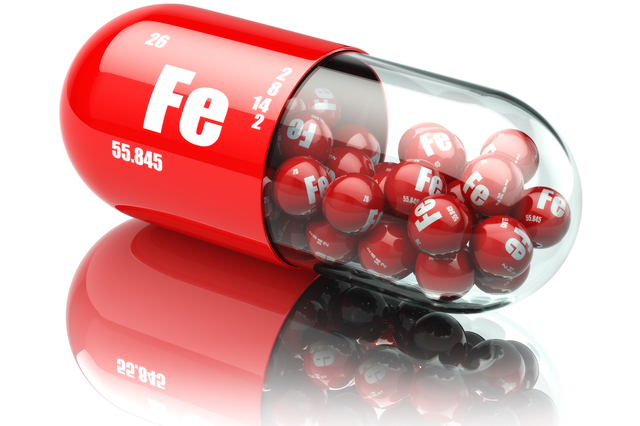New research overturns guideline advice that daily oral iron supplements be taken in divided doses to maximise absorption.

A study of iron-depleted young women in Switzerland has shown that optimum levels of iron are achieved when supplements are taken on alternate days in a single dose.
Taking iron on alternate days may also improve compliance by minimising gastrointestinal side effects, researchers have reported in Lancet Haematology.
In the study involving 40 young women with depleted iron stores, they found that the amounts of iron absorbed from supplements were significantly higher in people assigned to take 60mg on alternate days for 28 days than in those who took the same dose daily for 14 days.
Alternate-day dosing resulted in fractional iron absorption of 22% compared with 16% with daily dosing.
The cumulative total amount of iron absorbed was 175mg for the alternate-day regimen vs 131mg for the daily regimen.
“On the basis of these data, alternate-day dosing, compared with consecutive-day dosing, would translate to an estimated difference in haemoglobin of approximately 7g/L during a dosing regimen providing 1800mg of iron (eg, 30 doses of 60mg),” they noted.
And in a separate study involving 20 women, the researchers showed that iron absorption was no greater when 60mg supplements were given twice daily (morning and evening) compared with the same amount (120mg) given once daily in the morning.
The researchers said divided doses of iron-induced higher levels of the iron-uptake-blocking-protein hepcidin, which may explain why iron absorption was better with less frequent dosing.
They noted that only 5-28% of iron was absorbed when taken orally, and current guidelines recommended it be given in divided doses in the belief that this would reduce side effects.
“By contrast with most current recommendations on iron supplementation, our findings suggest that providing oral iron on alternate days in single morning doses increases iron absorption in young women and is an effective regimen to optimise iron absorption,” the researchers said.
They also noted that giving iron on alternate days was associated with lower rates of abdominal discomfort and halved the rates of nausea.
“This regimen not only improves iron absorption but also, because of its simplicity, might increase compliance,” they said.
An accompanying commentary welcomed the findings, saying the next step would be to conduct a larger trial that measured the impact of alternate-day iron dosing on haemoglobin levels in patients with well-documented iron deficiency anaemia.
Current guidelines from the National Blood Authority state that the recommended dose of iron for adults with iron deficiency anaemia is 100–200mg of elemental iron daily in 2-3 divided doses.
Author: Australian Doctor. Michael Woodhead (10th October 2017).